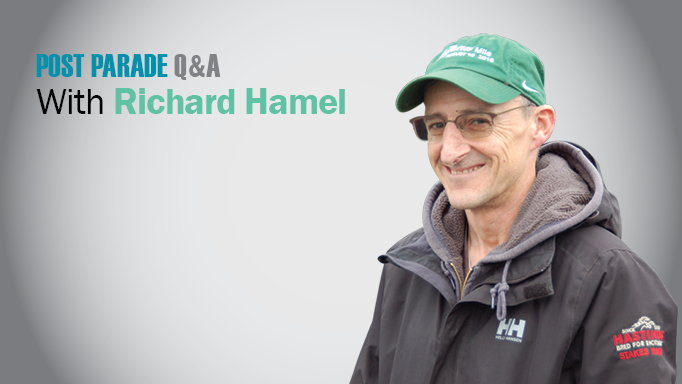How many years have you been riding now and how do you maintain the great success you have had year in and year out?
“I started riding at the bush tracks in Alberta and BC in 1987. In 1989, I went to Sandown Park in Victoria as an apprentice jockey. So it has been 30 years now. As for my most recent success, I find the longer into my career l get, the more knowledge I acquire. I’ve gained a reputation as a good rider and it gives me the opportunity to ride good horses. If you are riding live horses then you have a better chance of being successful.”
To stay at the top, is it the mental or physical side that is the most difficult?
“Physical, no question. The body wear and tear catches up to you. I’ve had four surgeries on my knee, I’ve got a screw in my ankle, a lot of hardware. Over time, you’re bound to have injuries. I mostly get fit galloping in the morning, with the horses. But I do have to train, with a focus on the weight. It’s taken me a long time to figure out how to keep the weight off and still stay strong. But my body has learned the routine. Mentally, you can’t be afraid at any time. If I start losing my heart out there and second guessing my decisions then I would have to quit.”
Do you have any tricks that are useful to keep a horse settled while in the gate, yet alert and ready to break sharply?
“Just stay calm. If you’re nervous in there, your animal is going to be nervous. So you have to mentally calm yourself, which can be hard to do. You have got to get yourself into a zone and bring your horse into that zone. When the horses are ready to go, l like to have him myself. I straighten them out, rather then have the assistant starter do it for me.”
You connect at a higher percentage with some trainers over others. Why is that true?
“It’s good communication. It also has a lot to do with my agent, Gordy. He works closely with the trainers. We just try to find the best horse in every race. The ones I hit on a high percentage with don’t mind when I move around. I can’t commit to a single barn. There’s not enough race days. Certain guys I hit with because they are aggressive with their horses. They don’t mind running them where they will win. When they are dropping a horse in where it might get claimed they want their best chance. They like to ride me because of my experience. I don’t make as many mistakes.”
Of all the top jockeys riding in North America today is there one you admire most?
“Gary Stevens. I’ve followed him my whole career and admire the way he carries himself as a rider. When I first started he was riding in Breeders Cup races, all the top races. He has had a very successful career. Gary has always had the gift of gab and it’s helped him. Of the local riders I’ve always looked up to Chris Loseth and his work ethic. Chris also taught me a lot personally, helped me open up. I spent a lot of time with him and his brothers. Chris answered all my questions and was very generous with his time.”
Who’s the best horse you have ever ridden and why does he merit that status?
“Fancy As. Amazing horse. He won everything from 3 1/2 furlongs to 1 3/8 mile. Not too many horses have ever done that. He was a champion two-year-old, but I didn’t get on him until he was three. As a three-year-old I rode him nine times, winning eight and coming in second once. We won the two biggest races in western Canada in 2001, the Canadian Derby and the BC Derby. In the Manitoba Derby, we came in second and if the trainer had let me ride my race we would have won that race, too. After that, he let me run my race. It would have been nice to win that one, being that he was a Manitoba-bred horse. At the end of his three-year-old year, the trainer, Red Smith, sent Fancy As down to Bob Baffert at Santa Anita. They were looking towards a couple of 4 year stakes in the spring California program, to see if he was good enough to run with the best. He finished third two races in a row with graded company then finished 7th in the Santa Anita Handicap. Gary Stevens rode him down there.”
Do you foresee another career in horse racing after you hang up your tack? Perhaps as a trainer?
“Training wouldn’t be that hard for me. I’ve learned all the ins and outs. I’ve made sure I pay close attention to the animal. Love the animal. I just don’t know if I could deal with the politics of being a trainer. Perhaps a big outfit with an owner, a guy who could write a big cheque and just say ‘show me results’. You know every trainers dream. (laughs). It depends. If you have sponsors you can train horses.”


